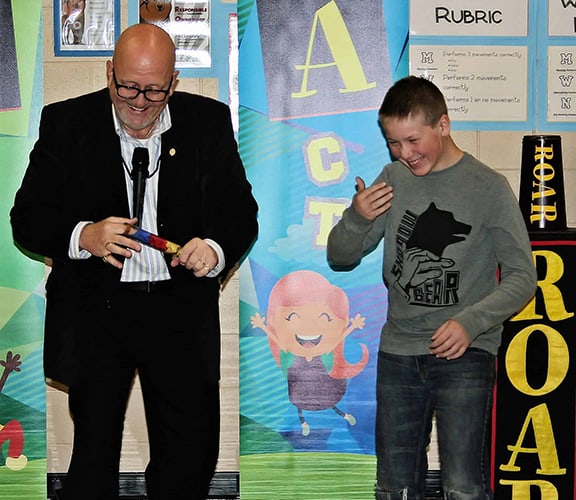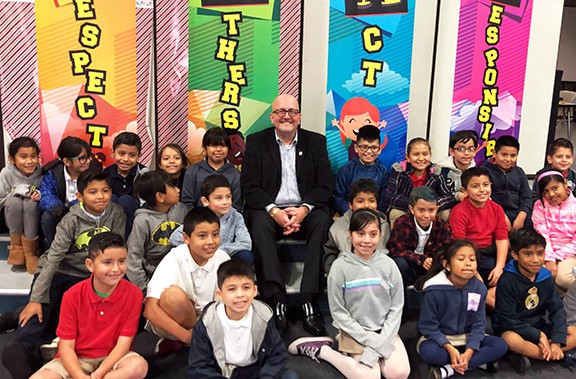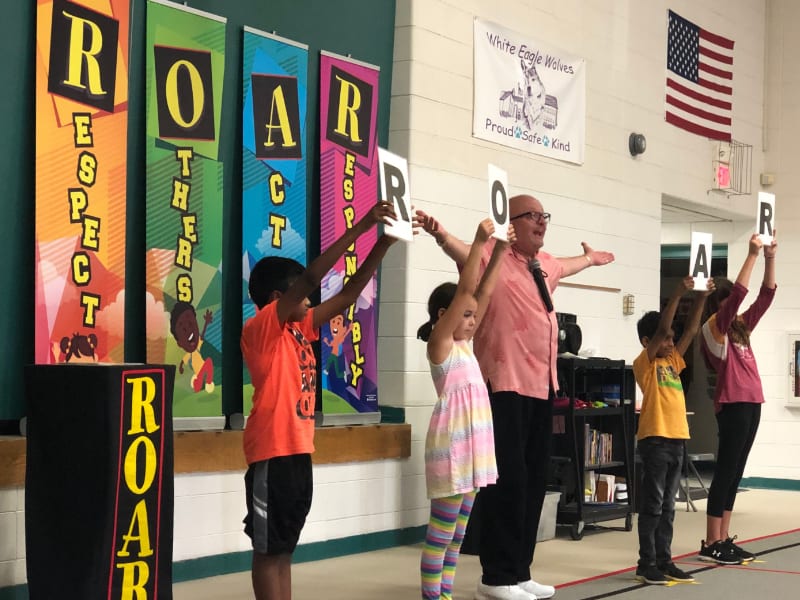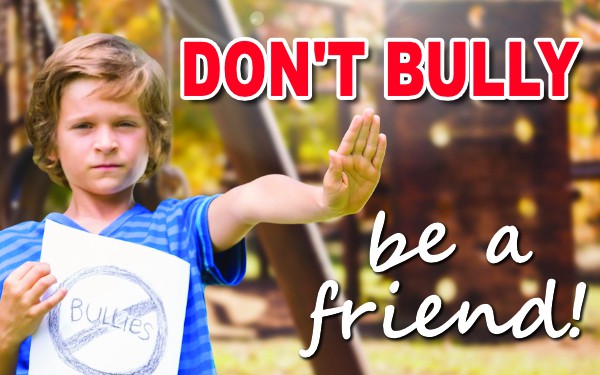The ROAR Show is the School Respect Assembly Program...
Designed for grades K-2 and grades 3-5, The ROAR Show Kindness Assembly Program uses storytelling, audience participation and a bit of magic to engage students with age appropriate lessons of inclusion, acceptance, kindness, responsibility, respect, safety, bully prevention and accountability for their actions. Elementary schools book The ROAR Show and utilize its lessons and activity worksheets to help remind students of their school-wide learning behavior expectations to allow for a positive school environment.
Audience Participation to Help Your Students Remember the Lessons!
Al “the Respect Guy” Ulman has developed a program where your students absorb life-changing information about inclusion, diversity, accepting differences, and being kind and nice. This helps your children build character, leadership skills and self-esteem. Al "the Respect Guy" presents age-appropriate examples in an upbeat and fun way, enabling your students to put into action these positive behavioral patterns in their everyday activities. Personal examples of being respectful of others, property and the environment, and being responsible for one's actions, are visually illustrated throughout The ROAR Show. This allows students the opportunity to see how their behavior affects others and often leads to preventing bullying.
The ROAR Show Integrates Well with Behavior Initiatives You are Already Using in Your School
Like most educators, you are looking for effective lessons on; responsibility, bullying prevention, respect, good health, safety and other important issues. If your school is like other schools I appear at across the country, you’ll discover how The ROAR Show kindness assembly program will help you achieve and reinforce your schools' behavior curriculum. We, can also integrate programs you are already using like; Social Emotional Learning, PBIS, Character Counts, PBS, Safe & Civil Schools, and Leader in Me.
Teachers, often refer back to The ROAR Show assembly program and support materials, and frequently comment on seeing more positive behavior in the classrooms, hallways, during breaks, lunch and on the playground.

















